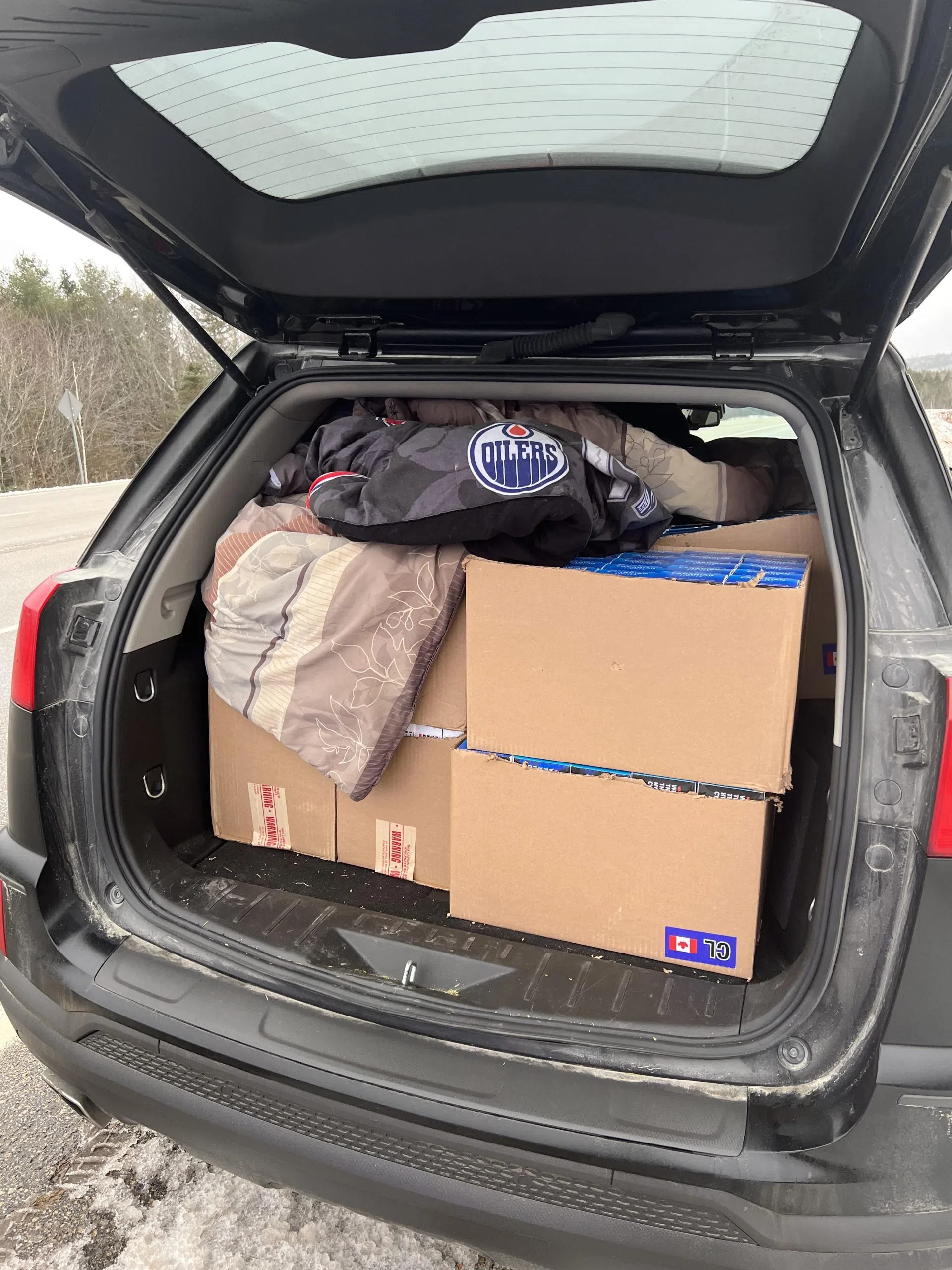
Unstamped cigarettes in the back of an SUV stopped by the RCMP along Highway 103. Photo:RCMP
Following a large seizure of illegal tobacco in Nova Scotia, The National Coalition Against Contraband Tobacco (NCACT) is speaking about the associated harms with the growing illicit industry.
NCACT’s Executive Director Rick Barnum says most people buying illegal cigarettes know what they are buying but don’t understand what their money ends up being used for. “People buying these are in most cases just looking to save some money on cigarettes, but we’ve found that many don’t understand this money makes its way back to organized crime, funding things like trafficking and smuggling,” said Barnum
Barnum comes from a policing background having served as the Deputy Commissioner of the Ontario Provincial Police (OPP) Investigations and Organized Crime command during his 32-year career and says few products are as profitable as cigarettes. “High-quality cocaine can be marked up at about 200 per cent, whereas cigarettes which are heavily taxed can be sold for as much as 400 per cent mark up,”.
Part of the reason the markup can be so high is the relatively low cost of producing cigarettes, coupled with the large amount of taxes imposed on them by government.
NCACT research indicates that governments across Canada are missing out on approximately $2.1 billion in tax revenue as a result of illicit tobacco.
Two ways to attack the problem
Barnum wants to see the illicit industry clamped down on and feels there are two primary ways to go about it, enforcement and informing consumers.
On the consumer side, Barnum wants to educate Canadians on the issues caused by supporting the illicit tobacco industry. NCACT has lots of information on how money from the industry finds its way to organized crime and the other dangerous crimes it ends up funding, which is available on its website. Barnum also regularly does interviews around the country to raise awareness.
On enforcement, Barnum says provinces can take effective action by increasing fines and punishments for illegal tobacco while also ramping up policing efforts to combat it. “When I speak with legislators- I point to the example of Quebec which recognized this problem in 2010,”. “They set up a police task force targeting illegal tobacco along with increased fines and their (Quebec) estimates now indicate the industry has shrunk by about 50 percent,”
Barnum believes that if Quebec can implement effective ways to combat the issue there’s no reason other provinces cannot. “It’s a matter of political will and that something we work towards, speaking with politicians and the public raising awareness, but it’s also is a major loss for tax revenue,”.
Although determining the exact cost of Quebec’s ramped-up enforcement efforts is difficult Barnum believes in terms of tax losses avoided the program paid for itself by about 5 to 1.









